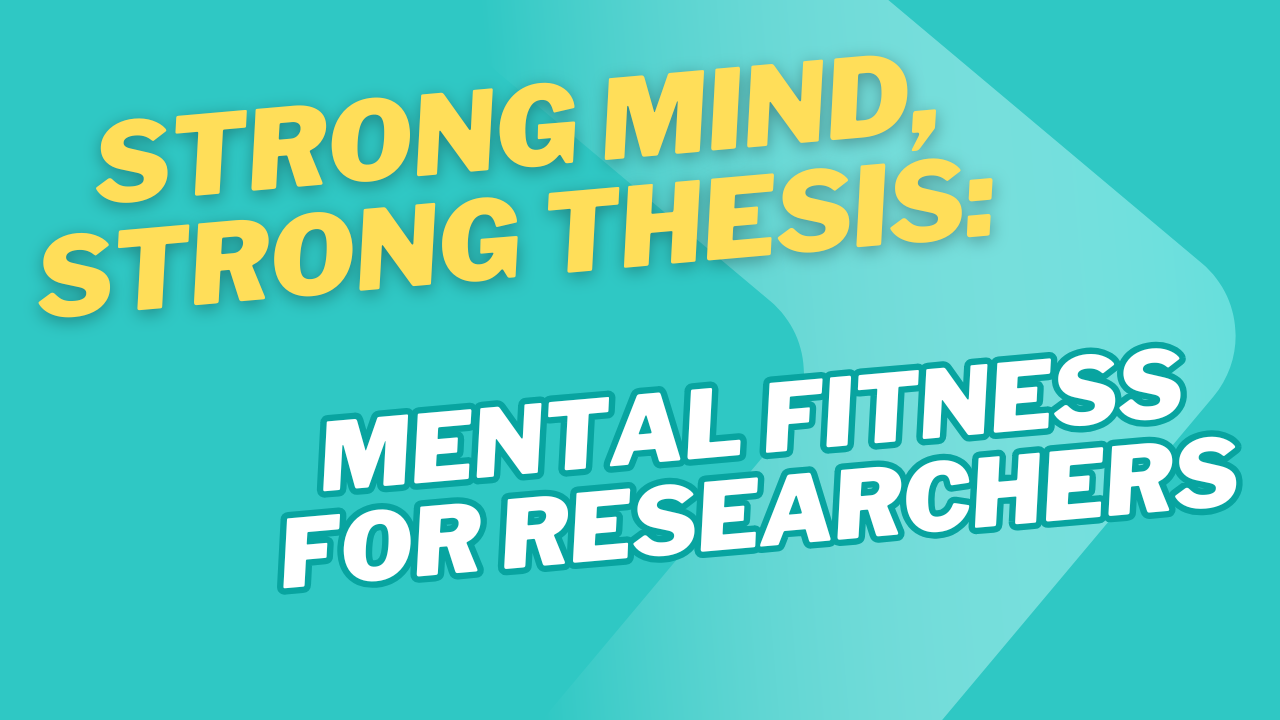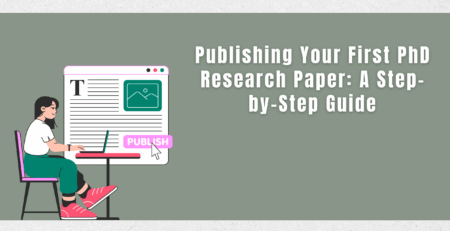Strong Mind, Strong Thesis: Mental Fitness for Researchers
Kenfra Research - Shallo2025-04-29T16:53:00+05:30The path to a PhD is a marathon, not a sprint. It’s a journey marked by intellectual challenges, emotional ups and downs, and an ongoing demand for perseverance. Amid the pressure to publish, meet deadlines, and produce original research, one factor often overlooked is Mental Fitness for Researchers. A strong mind doesn’t just enhance your academic output—it protects your well-being and helps you navigate the complexities of PhD life with resilience. In this blog, we explore why Mental Fitness for Researchers matters, how it influences your thesis writing, and actionable strategies to help you stay sharp, focused, and mentally healthy throughout your doctoral journey.

What is Mental Fitness?
Mental fitness refers to the state of your cognitive and emotional well-being. Just like physical fitness enables you to run, lift, and endure, mental fitness empowers you to think clearly, manage stress, stay motivated, and make sound decisions. For PhD researchers, who often face isolation, burnout, and academic pressure, developing mental fitness is not optional—it’s essential.
Why Mental Fitness Matters in a PhD Journey
PhD research is intellectually demanding. You’re expected to produce original ideas, critique complex theories, and work independently for long stretches. Without strong mental fitness, even the most brilliant minds can feel overwhelmed.
- Sustained Focus and Productivity
Writing a thesis requires long hours of reading, writing, and editing. Mental fitness enhances concentration and reduces procrastination.
- Resilience to Setbacks
Rejection from journals, criticism from supervisors, or failed experiments can be disheartening. Mental strength helps you bounce back faster.
- Better Decision Making
You’ll face countless choices during your research—methodologies, citations, structuring your thesis. A healthy mindset supports better judgment.
- Emotional Stability
Mental fitness helps you manage anxiety, imposter syndrome, and stress, enabling a more balanced academic life.
Signs Your Mental Fitness Needs Attention
- Difficulty concentrating or organizing thoughts
- Chronic stress, anxiety, or burnout
- Feeling isolated or disconnected
- Lack of motivation or frequent procrastination
- Trouble sleeping or changes in eating habits
If these signs persist, it’s time to prioritize your mental well-being.
Mental Fitness Strategies for PhD Researchers
Let’s look at practical strategies to build and maintain mental fitness throughout your PhD.
- Develop a Consistent Routine
Structure creates stability. Establish a daily schedule that includes time for research, writing, breaks, exercise, and relaxation. A predictable routine reduces mental clutter and boosts productivity.
Tip: Use time-blocking to allocate focused hours for deep work.
- Practice Mindfulness and Meditation
Mindfulness helps reduce anxiety and sharpen focus. A few minutes of meditation daily can significantly improve your emotional regulation and cognitive clarity.
Suggested Apps: Headspace, Calm, Insight Timer
- Set Realistic Goals
Break your research and writing into manageable milestones. Setting small, achievable goals creates momentum and reduces the overwhelm of big deadlines.
Example: Instead of “write chapter 3,” start with “outline chapter 3 subheadings.”
- Build a Support System
PhD life can be isolating. Connect with fellow researchers, mentors, or mental health professionals. Sharing your struggles can lighten your emotional load.
Join: Academic forums, writing groups, or peer support communities (like Reddit’s r/PhD or ResearchGate).
5. Sleep, Nutrition, and Physical Activity
Neglecting basic physical health drains mental energy. Prioritize 7–8 hours of sleep, balanced meals, and regular movement.
Simple Tip: A daily 30-minute walk can do wonders for both your body and mind.
- Practice Self-Compassion
You don’t have to be perfect. Be kind to yourself during setbacks. Celebrate small wins and acknowledge the effort you’re putting in.
Affirmation: “Progress, not perfection.”
- Limit Social Media and Digital Distractions
Too much screen time can erode attention span and feed self-doubt. Set boundaries for social media use, especially during work hours.
Try: The Pomodoro technique—25 minutes of focused work followed by a 5-minute break.
- Seek Professional Help When Needed
There’s no shame in asking for help. If stress becomes unmanageable, speak to a counselor or mental health professional. Many universities offer free or subsidized mental health services for PhD students.
Incorporating Mental Fitness into Thesis Writing
Thesis writing isn’t just about stringing words together—it’s about expressing ideas clearly, critically, and with confidence. Here’s how mental fitness directly enhances your writing:
- Clarity of thought: A calm, focused mind produces clearer arguments.
- Reduced writer’s block: Less stress means more creative flow.
- Improved self-editing: Resilience helps you handle feedback better.
- Consistent progress: Motivation and structure lead to steady writing habits.
Golden Rule: A healthy researcher writes a better thesis.
The Role of Universities and Supervisors
Institutions must also play a role in promoting mental fitness. Supervisors can support students by:
- Maintaining open communication
- Setting realistic expectations
- Encouraging work-life balance
- Recommending mental health resources
A supportive environment is vital to maintaining psychological well-being during the PhD journey.
Final Thoughts: Your Mind is Your Greatest Tool
A PhD is one of the most intellectually challenging and emotionally demanding achievements in academia. But it’s not a test of suffering—it’s a test of perseverance, discipline, and mental resilience. By prioritizing Mental Fitness for Researchers, you not only increase your chances of finishing your thesis but also promote long-term well-being. Embracing Mental Fitness for Researchers ensures you emerge from the experience stronger, wiser, and more self-aware.
Kenfra Research understands the challenges faced by PhD scholars and offers tailored solutions to support your academic goals. From topic selection to advanced plagiarism checking.








Leave a Reply